These courses offer attendees opportunities to expand their knowledge and skills in small groups with expert instructors. Formats range from lecture and demonstration to hands-on exercises and activities. Advance registration is required and enrollment is limited.
Tutorial 1: MBA Basics: How to Think Like a Business
Tutorial 2: Anthropological Theory for Ethnography in Business
Tutorial 3: Ethnographic Thinking for Social Change
Tutorial 4: Decoding Organizational Change
Tutorial 5: Semiotics: A User’s Guide to Seeing Differently
Tutorial 6: Speculative Design: Futures Prototyping for Research and Strategy
Tutorial 7: Structuring Analysis for Innovation
Instructors: Carolyn Hou & Emil Stigsgaard Fuglsang, ReD Associates
This tutorial will give you a foundational understanding of how businesses operate from financial, organizational, and strategic standpoints. The course is designed for applied social scientists, designers, and other non-MBA professionals looking to enter the corporate world or make a bigger impact in their organizations or as consultants. Throughout the course, participants will learn how to feed this knowledge back into their own work and ethnographic approaches. Using real data and case studies the course will cover:
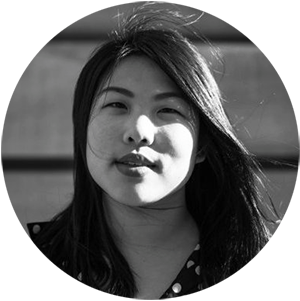 Carolyn Hou is a cultural anthropologist and strategy consultant at ReD Associates. She has extensive experience advising Fortune 500 clients working in healthcare, consumer goods, consumer electronics, telecommunications, and automotive industries. Hou completed her graduate degree in Social Anthropology at the University of Oxford, where she also served as President of Oxford Women in Business.
Carolyn Hou is a cultural anthropologist and strategy consultant at ReD Associates. She has extensive experience advising Fortune 500 clients working in healthcare, consumer goods, consumer electronics, telecommunications, and automotive industries. Hou completed her graduate degree in Social Anthropology at the University of Oxford, where she also served as President of Oxford Women in Business.
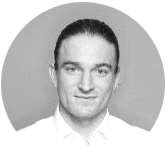
Emil Stigsgaard Fuglesang is a political economist and strategy consultant at ReD Associates. He previously worked as management consultant at the Scandinavian company QVARTZ advising government and private organizations on strategy and operations, and he has assisted mergers and acquisitions in several different industries, including finance, media and construction. Emil completed his MSc in International Business and Politics at Copenhagen Business School (CBS) and Columbia University, and President of the student union at CBS.
Instructors: Kathi Kitner & Jamie Sherman, Intel Corporation
Anthropological theory deepens and extends the impact of ethnography, adding significant value to the companies, organizations and communities we work with. This tutorial covers the theoretical positions that shape anthropological approaches to qualitative inquiry. Using exercises that ground participants in the interdependence of theory and practice, we will look at anthropological theories in relation to other modes of inquiry and understandings of research, knowledge, evidence, and insight. Themes to be explored include observation and objectivity; materiality and context; and dynamics of power in the ethnographic encounter. This tutorial will be useful to both experienced and novice researchers—offering a core theoretical foundation for those with little formal training in anthropology, as well as tools and models for anthropologists who find themselves working with stakeholders and researchers with different epistemological backgrounds.
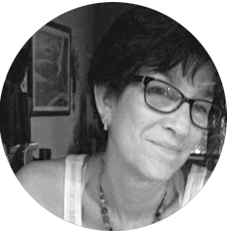 Kathi Kitner, PhD, is a cultural anthropologist who has over 30 years conducting ethnographic fieldwork across a wide spectrum of topics: the role of gender and class in technology adoption, economic development, environmental and ecological sciences, and drug addiction. She now works at Intel Corporation where her current focus is on ambient intelligence, the internet of things, and food supply systems.
Kathi Kitner, PhD, is a cultural anthropologist who has over 30 years conducting ethnographic fieldwork across a wide spectrum of topics: the role of gender and class in technology adoption, economic development, environmental and ecological sciences, and drug addiction. She now works at Intel Corporation where her current focus is on ambient intelligence, the internet of things, and food supply systems.
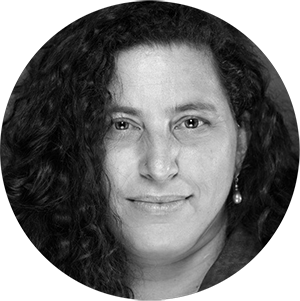 Jamie Sherman, is a cultural anthropologist (PhD Princeton, 2011) with 12 years’ experience in domestic and international research, including industry product groups, R&D, and academia. She has taught courses in ethnographic methods, anthropology of the body, and the anthropology of performance. Since joining Intel Corporation in 2012 her work has focused on the emergent technologies and technological practices from quantified self to wearable technologies, virtual and augmented reality.
Jamie Sherman, is a cultural anthropologist (PhD Princeton, 2011) with 12 years’ experience in domestic and international research, including industry product groups, R&D, and academia. She has taught courses in ethnographic methods, anthropology of the body, and the anthropology of performance. Since joining Intel Corporation in 2012 her work has focused on the emergent technologies and technological practices from quantified self to wearable technologies, virtual and augmented reality.
Instructors: Jay Hasbrouck, Hasbrouck Research Group & Charley Scull, Practica Group
In this interactive tutorial, participants will explore a more robust, engaged and integrated role for ethnographers in important social and environmental issues. The course takes as its premise that ethnographic thinking has a role to play well beyond research: ethnographic thinking can frame problems and catalyze change. We will start by providing participants with a solid grounding in systemic challenges and social entrepreneurship, then explore some successful roles ethnographers have played as part of inter-disciplinary teams. In the second part of the tutorial, participants will get engaged in ideation activities designed around a sampling of social issue case studies. Participants will identify opportunities for ethnographic thinking that go beyond research, sketching and defining partnership models, positions, motivations, actions, interventions, and disruptions. These activities will make concrete the ways ethnographers can better serve as facilitators for creating common ground, working collaboratively, and building coalitions.
 Jay Hasbrouck, PhD, is a research strategist and anthropologist whose insights have shaped product and service innovation for clients in healthcare, technology, tourism, consumer products, health and beauty, home care, nutrition, and government. He is passionate about designing learning processes that optimize for the most useful and relevant insights. He has held positions at IDEO, Intel, and USC’s Center for Sustainable Cities, and managed national and global scale innovation projects, including in Mexico, Egypt, Germany, South Korea, Brazil, Japan, Malaysia, China, Russia, France, and the United States. He has been active in the American Anthropological Association, EPIC, and ACM SIG-CHI.
Jay Hasbrouck, PhD, is a research strategist and anthropologist whose insights have shaped product and service innovation for clients in healthcare, technology, tourism, consumer products, health and beauty, home care, nutrition, and government. He is passionate about designing learning processes that optimize for the most useful and relevant insights. He has held positions at IDEO, Intel, and USC’s Center for Sustainable Cities, and managed national and global scale innovation projects, including in Mexico, Egypt, Germany, South Korea, Brazil, Japan, Malaysia, China, Russia, France, and the United States. He has been active in the American Anthropological Association, EPIC, and ACM SIG-CHI.
 Charley Scull, PhD, has worked in the consumer insights and innovation spaces since 2005. His work has spanned from the granularity of package re-design and local issues like how to increase audience engagement for a botanical garden, to systemic questions like sustainability in the global fishing supply chain and the experience of living with chronic disease. Charley was trained as a visual anthropologist and has worked in the US, Asia and the EU. He is a partner of Practica Group, a consumer research and consulting firm that provides strategic consulting based on ethnographic cultural analysis of consumer practices.
Charley Scull, PhD, has worked in the consumer insights and innovation spaces since 2005. His work has spanned from the granularity of package re-design and local issues like how to increase audience engagement for a botanical garden, to systemic questions like sustainability in the global fishing supply chain and the experience of living with chronic disease. Charley was trained as a visual anthropologist and has worked in the US, Asia and the EU. He is a partner of Practica Group, a consumer research and consulting firm that provides strategic consulting based on ethnographic cultural analysis of consumer practices.
Contributors:
Cheryl Dahle, CEO of FlipLabs, is an entrepreneur and journalist who works at the intersection of business and social change. Her recent focus is researching, developing and launching ways to solve large-scale, systemic problems. She is founder of the Future of Fish, an initiative to help the seafood industry respond creatively and responsibly to the threat of fish extinction.
Lisa DiCarlo, PhD, is a cultural and applied anthropology in the Sociology Department and Business, Entrepreneurship and Organizations Program at Brown University. Her work focuses on on migration, identity politics, experience design, entrepreneurship, social innovation, and creative economy research and education in the US, MENA region, and Turkey.
Instructors: Kate Sieck (RAND Corporation) and Steven Garcia (Team One)
Businesses and other organizations are famous (perhaps infamous!) for their rich lexicon describing change, growth, revitalization, reinvention, innovation, disruption, revolution, evolution, and every manner of “doing something different.” But what does this all mean? This tutorial will take a collaborative, case-based approach to thinking critically about the language of organizational change. We will explore these models of change and what they signal about organizations, cultural contexts, and the opportunities that lie ahead for their communities. Combining cognitive models and discourse analysis, we will investigate the nuances behind the dominant calls for organizational change. Additionally, we’ll practice a few key tools for eliciting and unpacking these concepts when you come across them in your work. Through the course, participants will:
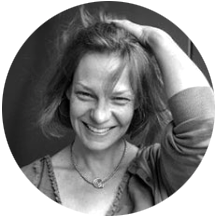 Kate Sieck, PhD, is an anthropologist at RAND Corporation whose work focuses on the social determinants of behavioral and cognitive change. A cultural anthropologist by training with expertise in cognitive models and linguistics, she taught undergrad anthro courses for 10 years before launching a career in the business world. She has conducted research around the world and delivered keynote presentations at diverse venues, from NASCAR to the American Psychological Association.
Kate Sieck, PhD, is an anthropologist at RAND Corporation whose work focuses on the social determinants of behavioral and cognitive change. A cultural anthropologist by training with expertise in cognitive models and linguistics, she taught undergrad anthro courses for 10 years before launching a career in the business world. She has conducted research around the world and delivered keynote presentations at diverse venues, from NASCAR to the American Psychological Association.
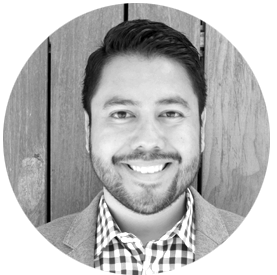 Steven Garcia is a cultural anthropologist at Team One, a full-service marketing communications agency specializing in premium, luxury, and aspirational brands. With over 10 years of experience as a strategic planner spanning across the luxury, automotive, casual dining, financial and technology categories, he recently assumed a new role at Team One where he is building an anthropology practice and conducting cultural analysis to inform brand strategies and consumer insights. He is a M.S. candidate in applied anthropology at the University of North Texas.
Steven Garcia is a cultural anthropologist at Team One, a full-service marketing communications agency specializing in premium, luxury, and aspirational brands. With over 10 years of experience as a strategic planner spanning across the luxury, automotive, casual dining, financial and technology categories, he recently assumed a new role at Team One where he is building an anthropology practice and conducting cultural analysis to inform brand strategies and consumer insights. He is a M.S. candidate in applied anthropology at the University of North Texas.
Instructors: Cato Hunt & Clem McCulloch (SpaceDoctors)
Semiotic insight powerfully complements ethnographic approaches. Semiotics, the study of signs and cultural meaning, has been gaining ground in the world of commercial research. Semiotics has also been successfully melded together with ethnographic and other cultural approaches, especially in the UK and Europe. This tutorial will equip participants with the tools, techniques and hands-on experience needed to begin their own semiotic research endeavors. Beginning with a grounding in semiotic theory, we will focus on building practical skills through ‘live decoding’ of a cultural theme. We will also share new thinking on sensory semiotics, which explores the role of the senses in communicating and constructing meaning through experience. By the end of the session participants will:
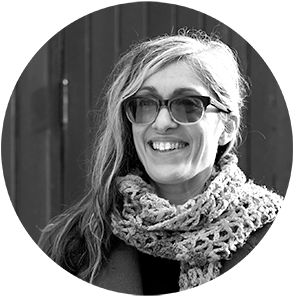 Cato Hunt has spent the last 15 years helping clients grow their brands by understanding cultural meaning. As Director of Innovation at Space Doctors, Cato leads the way in exploring and developing new ways in which we can understand, create and measure meaning, by drawing from a wide range of disciplines—from the cognitive and behavioural sciences to design theory, anthropology and experience design.
Cato Hunt has spent the last 15 years helping clients grow their brands by understanding cultural meaning. As Director of Innovation at Space Doctors, Cato leads the way in exploring and developing new ways in which we can understand, create and measure meaning, by drawing from a wide range of disciplines—from the cognitive and behavioural sciences to design theory, anthropology and experience design.
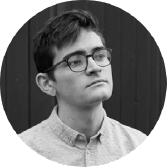 Clem McCulloch is a Project Executive at Space Doctors. He brings a deep interest in philosophy and critical theory applied to the thinking and methodology underpinning commercial semiotics. He is currently working with Cato to develop new hybrid methodologies by drawing from the behavioural sciences.
Clem McCulloch is a Project Executive at Space Doctors. He brings a deep interest in philosophy and critical theory applied to the thinking and methodology underpinning commercial semiotics. He is currently working with Cato to develop new hybrid methodologies by drawing from the behavioural sciences.
Instructors: J. Paul Neeley (Neeley Worldwide & Royal College of Art) & Elliot Montgomery (Extrapolation Factory & Parsons School of Design)
In our world where technologies are increasingly a source of significant disruption in people’s lives, emerging methods from speculative and critical design practice are finding their way into the designer’s and researcher’s toolkit as powerful ways to create new kinds of meaning and perspective that create new value. In this tutorial you’ll get up to speed on the latest speculative design practice, explore its value as a research tool and for the development of strategy, and participate in an exercise to experience the workings of these approaches. This course will give you:
The tutorial is open to all backgrounds, both researchers and designers, and no prerequisites or particular skills set are needed for participation.
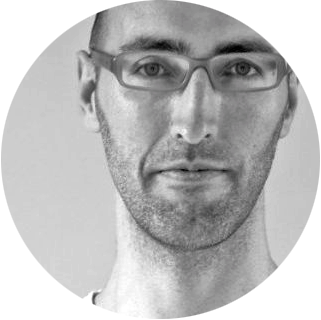 J. Paul Neeley is a service and speculative designer exploring the social, cultural, and ethical implications of emerging technologies, with recent projects on happiness, healthcare, future mobility, and issues of complexity and computational irreducibility in design and business. He is consults in service & speculative design at Neeley Worldwide with clients like Moovel and the Policy Lab UK, and is a visiting lecturer in Service Design at the Royal College of Art. He has worked previously as a service designer at Mayo Clinic Center for Innovation and researcher at Unilever. He hold a Masters in Design Interactions from the Royal College of Art in London and a Bachelors in Communication Studies and Economics from Northwestern University.
J. Paul Neeley is a service and speculative designer exploring the social, cultural, and ethical implications of emerging technologies, with recent projects on happiness, healthcare, future mobility, and issues of complexity and computational irreducibility in design and business. He is consults in service & speculative design at Neeley Worldwide with clients like Moovel and the Policy Lab UK, and is a visiting lecturer in Service Design at the Royal College of Art. He has worked previously as a service designer at Mayo Clinic Center for Innovation and researcher at Unilever. He hold a Masters in Design Interactions from the Royal College of Art in London and a Bachelors in Communication Studies and Economics from Northwestern University.
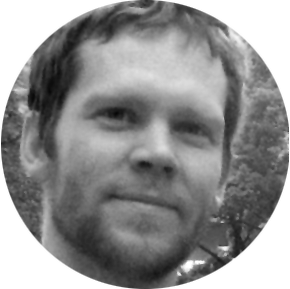 Elliott P. Montgomery is a researcher and strategic designer whose work focuses on speculative alternatives at the confluence of developing social, technological and environmental issues. He is an Assistant Professor of Strategic Design at Parsons School of Design and co-founder of The Extrapolation Factory, a futuring research initiative. He has practiced as a design consultant for clients such as Autodesk, GE, LG, Honeywell, and UNICEF, as well as for tech startups and non-profits. He holds an Masters in Design Interactions from the Royal College of Art in London and a Bachelors in Industrial Design from Carnegie Mellon University.
Elliott P. Montgomery is a researcher and strategic designer whose work focuses on speculative alternatives at the confluence of developing social, technological and environmental issues. He is an Assistant Professor of Strategic Design at Parsons School of Design and co-founder of The Extrapolation Factory, a futuring research initiative. He has practiced as a design consultant for clients such as Autodesk, GE, LG, Honeywell, and UNICEF, as well as for tech startups and non-profits. He holds an Masters in Design Interactions from the Royal College of Art in London and a Bachelors in Industrial Design from Carnegie Mellon University.
Instructors: Marcelo Fagundes & Murilo Gomes, INSITUM
Much is said about research processes for innovation, but the analysis stage is still somewhat hazy, even though it is crucial to realizing the value of our research. Because analysis is an organic process that can be chaotic and unpredictable, careful planning and selection of techniques is critical to the quality of the analytical outcome. In this tutorial you will learn concrete strategies to evaluate and design the analysis techniques you need to organize, interpret, synthesize, and present insights and innovation opportunities according to different goals and contexts. You’ll also experience the structured analysis planning process used by INSITUM to choose the most suitable techniques for each phase of the process.
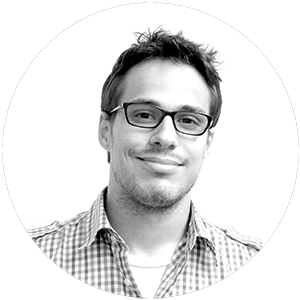 Marcelo Fagundes is a postgraduate lecturer in Design Research at Insituto Europeo di Design and Account Manager at INSITUM, where he helps Fortune 500 companies identify innovation opportunities and transform them in impactful projects. He also has worked as a design strategist at the technology consultancy MJV integrating business, technology and human-factors to design services and strategies for the Brazilian government and private companies. He holds a degree in design from the Sao Paulo University of Fine Arts an was the Local Communications Chair of EPIC 2015.
Marcelo Fagundes is a postgraduate lecturer in Design Research at Insituto Europeo di Design and Account Manager at INSITUM, where he helps Fortune 500 companies identify innovation opportunities and transform them in impactful projects. He also has worked as a design strategist at the technology consultancy MJV integrating business, technology and human-factors to design services and strategies for the Brazilian government and private companies. He holds a degree in design from the Sao Paulo University of Fine Arts an was the Local Communications Chair of EPIC 2015.
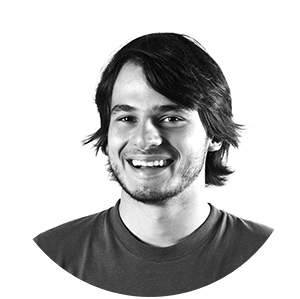 Murilo Gomes was originally trained in Industrial Designer with emphasis on Products. He has been working in user centered innovation at INSITUM since 2010, and currently leads multidisciplinary teams conducting innovation projects for new services and products, strategic development and digital interaction for numerous companies such as Telefonica, Avon, Intel, Google, Facebook, Bosch, Panasonic, Samsung, Sony, Itaú, and others. He also serves as head of internal capacity management at INSITUM, mapping and developing internal expertise.
Murilo Gomes was originally trained in Industrial Designer with emphasis on Products. He has been working in user centered innovation at INSITUM since 2010, and currently leads multidisciplinary teams conducting innovation projects for new services and products, strategic development and digital interaction for numerous companies such as Telefonica, Avon, Intel, Google, Facebook, Bosch, Panasonic, Samsung, Sony, Itaú, and others. He also serves as head of internal capacity management at INSITUM, mapping and developing internal expertise.